31 January 2019
GSOM SPbU student Valeriya Shvets spent spring semester of 2018 in Louvain School of Management. Here is her story about living in a city that was created for a university.
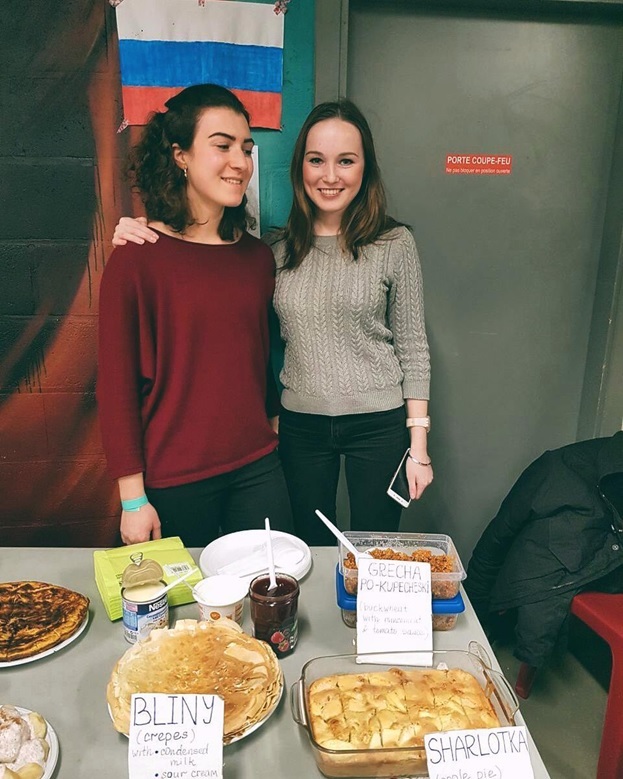
What would be great to know before leaving
It would be great to learn more about Louvain-la-Neuve: what is it like, where in Belgium it is situated, how it is connected to other cities. I didn’t bother to find out all this in advance, and almost to the last, I thought that I was going to Louvain — an old medieval city in the Dutch part of Belgium.
Louvain-la-Neuve is a really small city an hour from Brussels by train. It’s impossible to live in the rhythm of a big city there. Moreover Louvain-la-Neuve was built in the 70s, so there is nothing medieval there, as in Bruges, Ghent or old Brussels. It seems to me that it is quite useful to know all this before the arrival: you won’t have any wrong expectations and won’t be disappointed when you arrive.
Also I wish I had known more about the system of student communities, which successfully work at the School. It is called kot-à-projet or KAP and it assumes that, students live and work on one project together. In most cases they organize various events for other students and citizens. It is difficult to become a part of such a community for a foreign student, but there are some exceptions. It is wonderful because students in these communities become very close friends, almost like a family. This is a unique feature of this university, I guess, and I think it is the best way to spend your semester abroad.
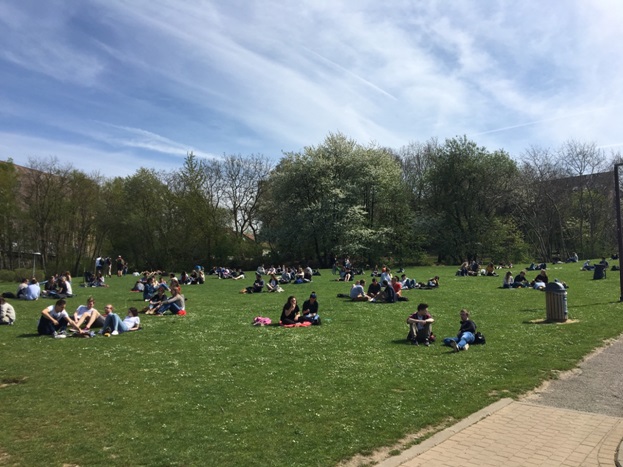
The last thing is a transport card. For some reason they don’t write about it in the Survival Guide. In Belgium, there is an opportunity to get a travel card to the city which you travel more often to. Local students buy this card to visit home from time to time. Exchange students can use it to travel to Brussels. Five return tickets cost about €10 (+ €5 for the card itself when you buy it for the first time). It is very cheap and the card pays off, even if you traveled 1-2 times, as the train to Brussels costs €5 one way on weekdays. On weekends, there is a 50% discount on all round trips.
Documents
It is difficult to get Belgian visa. In St. Petersburg there is a visa application center. The service fee there is 12 thousand rubles, though they don’t know anything about required documents. They only admit documents, check the accuracy , send it to the consulate in Moscow, and then receive and issue your passport with a visa. To find out which papers are required, you need to call or write to the Belgian consulate in Moscow. They respond quickly and provide necessary information.
As for documents, you will have to get your criminal records certificate with apostil. I made it in the Information Center of Ministry of Internal Affairs. The certificate is free, but it may take 4 weeks to get it. Apostil costs around 3000 rubles and its issue will take 3 days. Also they will need your acceptance letter from the university, filled application form, the proof of payment of administration fee to the Belgian Ministry of foreign affairs (€200) and the proof of your financial stability: it can be a sponsor or the scholarship from university. First option is to find a sponsor who earns not less than €1500 a month, can get salary and tax certificates from the job and a bank and go to Moscow or St. Petersburg to sign the papers at the Consulate or Embassy. The second option is to transfer the amount of money needed for your stay in Belgium to the Belgian University account. When I was going on exchange it was €650 per month. After it they will send you a letter stating that you are financially stable. The third way is to transfer the same amount of money to the university account in Russia. At GSOM SPbU, in this case, you will be given a certificate stating that the School is a “sponsor” of your trip. I did just like that. Though the consulate had questions about my financial support, and therefore I was given a visa only for the period of my exchange semester (some students get for a longer period).
As for the medical certificate, in St. Petersburg there are only two clinics accredited by the Belgian consulate — Evromed and AmericanClinic. I made a certificate in Evromed and paid 3000 rubles for it.
Welcome Week
Unfortunately, due to visa problems, I missed the introduction week. As far as I know, it was organized by the local Erasmus kot-à-projet. It seems to me that it worth participating, since it is a good way to meet other exchange and local students.
Culture shock
It was not a culture shock I would say, but Louvain-la-Neuve shock. This town is unique! I have never seen anything like this. It was built specially for the university. In the city center there are only pedestrian sidewalks, there is no roadway . At first, I was a little upset that the city was so small, and there was nothing special to observe, but then I understood the charm of it. Waking up one hour before the class starts, leaving the house 5-10 minutes before it... And on your way around the city you will always meet someone you know, even if you just arrived and don’t have a lot of friends. It is very cool and unusual to live in such a tiny space.
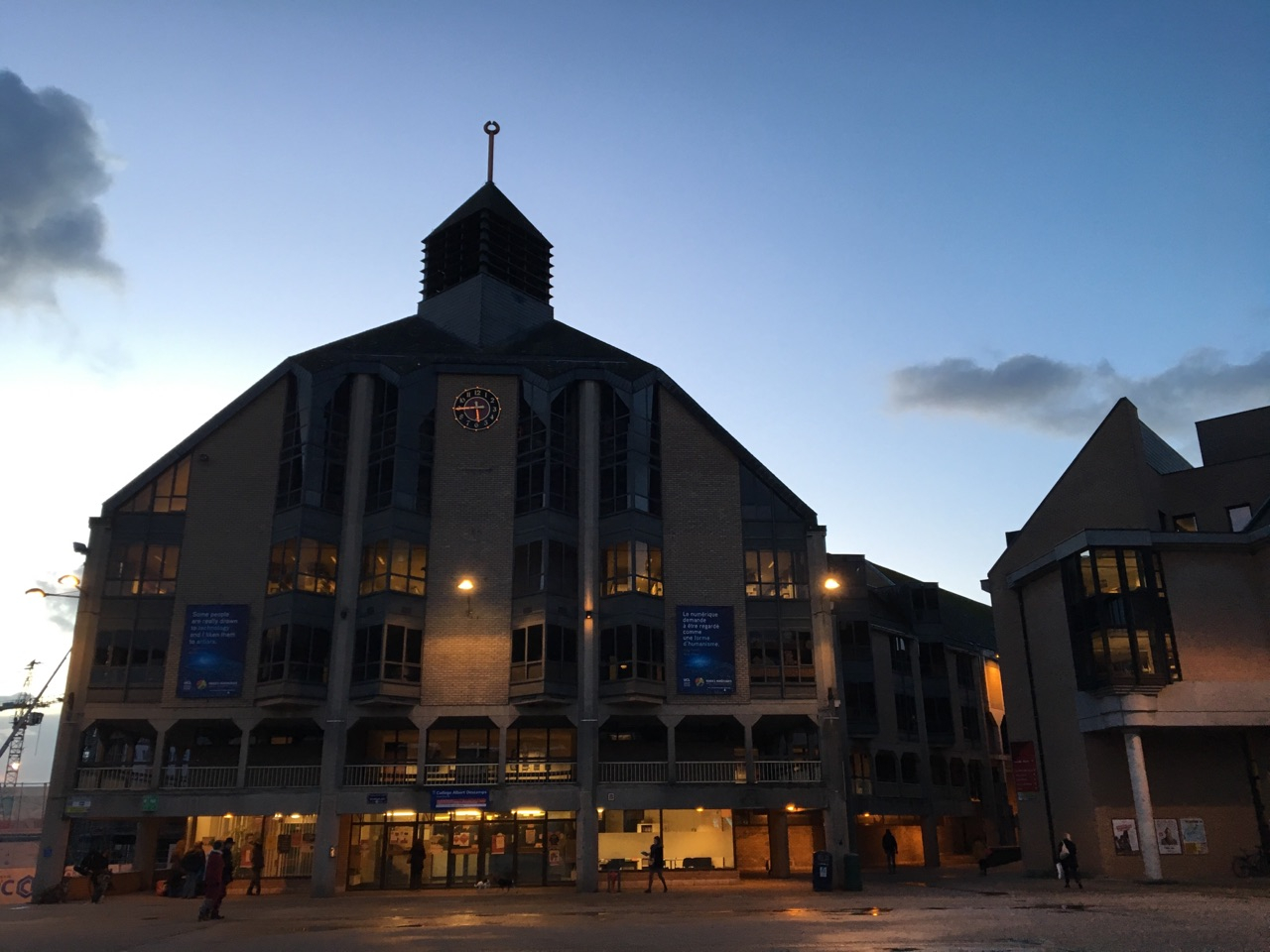
On weekends, Belgian students go home and the city gets empty. But in the middle of the week, at nights, they hang out in the city center, drink and make a lot of noise. This is sometimes very annoying.
Here are some unusual things that are noticed in Belgium:
1. A lot of festivals. Almost every day something happens. It is organized by the students, city, region, non-profit organizations, etc.
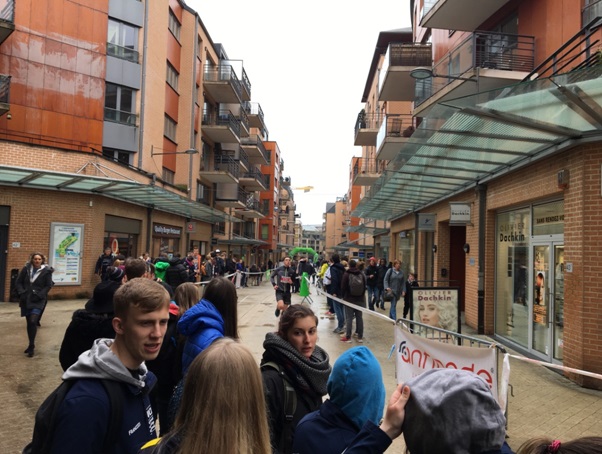
2. In winter, Belgians dress very badly. Not in terms of style, but in terms of warming. And then everyone gets sick and coughs in class.
3. Mobile Internet is very expensive.
4. In addition to the usual fast food, the typical students’ lunch is Italian pasta with different sauces, which is served in a paper cup!
University
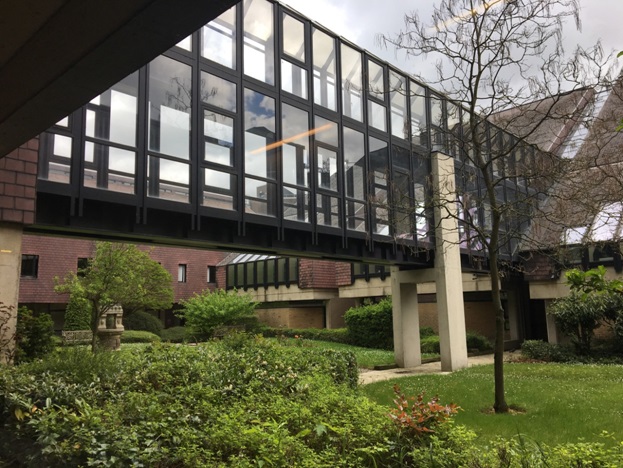
The whole city is the university. The campus of the Louvain School of Management was built in the 1970s, so it is not very modern. The buildings are quite simple, made with bricks. There are many libraries in different faculties. I liked the fact that the computer class works 24/7, although during the exam session it is difficult to find an empty seat even at night.
Place to live
In Louvain there are several options for housing: a dorm or a rented apartment or room. It is cheaper to live in a dorm, but you cannot choose a room. In the dorm’s office they give you a room and you either agree and take it or go away and look for a place to live by yourself. The rooms in the dormitories are separate, with a shared kitchen and toilet.
Studies
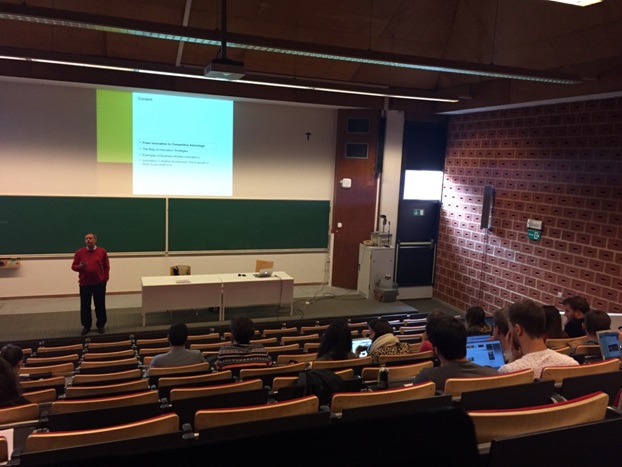
Registration for courses was quite easy, the only issue was that many courses were overlapping. Studying difficulty depends on a course and professor. Final assignments are also different in various courses.
I took 5 courses and a French language class. It was impossible to take more, since the host university had limitation for exchange students of 30 ECTS. For me, the most difficult course was Quantitative methods of analysis in Business, because the lecturer went very deep into mathematical theory, and we had to do the project ourselves in R Studio. It was supposed that we all know R language, although I do not remember that it was mentioned in the course description.
My favorite subject was Social and Sustainable Entrepreneurship, since I generally love everything related to sustainability, but most of all I liked that I learned new things and concepts almost in every class. Although this course was quite time consuming. The final assignment consisted of solving cases, weekly summary of academic articles, the final group project (we developed a business plan for a social enterprise), and an essay about the course.
Another great course was Digital Marketing. It was a pilot course developed by University together with Google. In addition to regular lectures, we had four lectures from Google experts. The final project was a digital advertising campaign in Google Adwords for a real NGO. We studied Google advertising office, developed communication with a “customer”, got results, and experimented with the campaign evaluation. It was a hands-on experience that you don’t have in any class.
Money
For the room in dorm I paid €326 per month + €15 for home internet. Food in Louvain is more expensive than in St. Petersburg. The cheapest option is the university canteen, where you can by lunch for €3,5. Mobile internet is expensive too, 5GB costs €15.
Most of the money I spent on traveling. I traveled to Ghent, Bruges, Brussels, Namur, Ostend, Knock, Antwerp and other small Belgian cities. I also went to France, to Italy, and to Netherlands to visit my friends. I didn’t manage to travel around Europe much, as I didn’t fit in € 650 a month, even trying to save money. According to my rough estimates, I spent €700-750 per month for everything, including travelling.
Best practices you would recommend to implement at GSOM
При использовании данного сайта Вы подтверждаете свое согласие на использование ВШМ СПбГУ cookie файлов. С подробной информацией Вы можете ознакомиться, перейдя по ссылке.